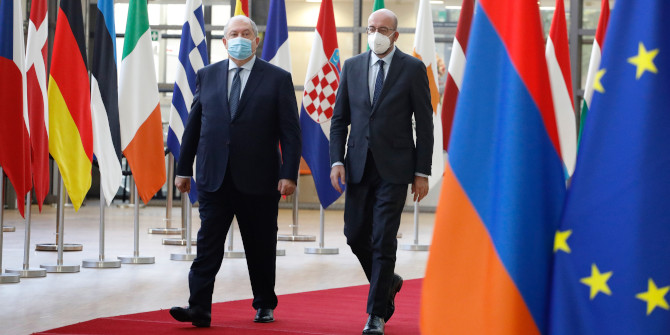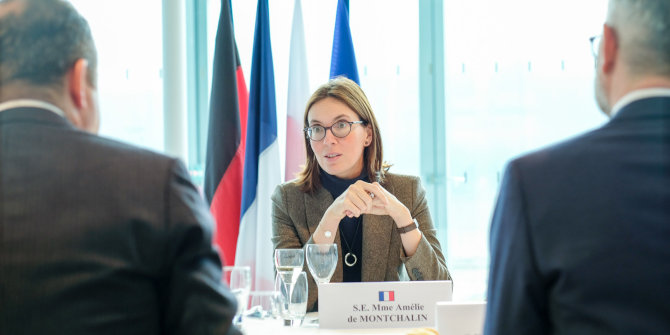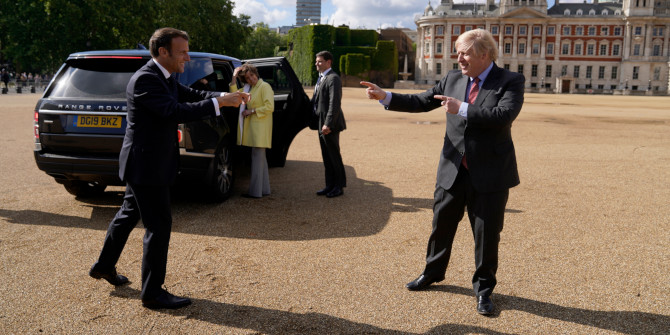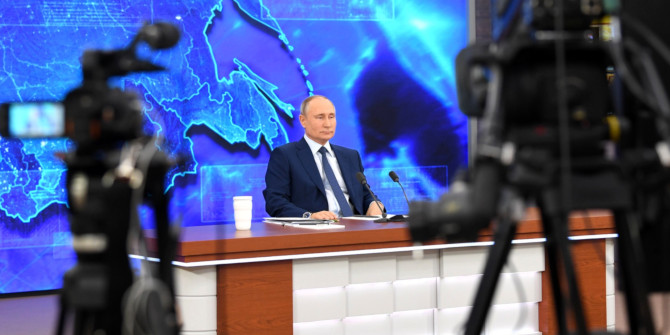The six states that sit within the EU’s ‘Eastern Partnership’ have experienced a turbulent year, from the mass protests that have taken place in Belarus, to war between Armenia and Azerbaijan. Katsiaryna Lozka argues these developments should prompt a reassessment of how the EU seeks to engage with the countries in its eastern neighbourhood.
The EU’s Eastern Partnership states are more unstable than ever. Anti-government protests in Belarus, fighting between Armenia and Azerbaijan, democratic backsliding in Georgia, increasing polarisation in Moldova, and Ukraine’s constitutional crisis have ensured that all six states are now in various levels of turmoil. These events, woven together, suggest profound changes are occurring in Europe that require revisiting the EU’s approach toward its eastern neighbours.
Belarus
The first big change is the rebirth of Belarus as a political nation. Protests against Alexander Lukashenko’s regime have become a feature of life in Belarus following the country’s disputed presidential election on 9 August. The accompanying rise of national consciousness signals there is no way back to the pre-election status quo. Even if the current standoff remains unresolved, a profound qualitative change has already occurred in Belarusian society.
At the most basic level, the citizens of Belarus have made clear their independence and articulated the values they want their country to be built on, namely democracy, peace and respect for human rights. This unexpected crisis has shattered the post-Soviet space, with Moscow displaying difficulty in accepting the societal changes that have occurred. These changes promise to leave a lasting mark on Europe’s ‘last dictatorship’. Indeed, a possible regime change could herald the beginning of the country’s journey toward a democratic transition. Nevertheless, one should not be lured into thinking that regime change will prove a panacea for the political and economic problems that persist in Belarus.
Armenia and Azerbaijan
The second crucial development has been the escalation of fighting between Armenia and Azerbaijan over Nagorno-Karabakh. The extent to which the Russia-backed agreement between the two countries that was announced on 10 November will hold remains to be seen. However, it has triggered protests in Armenia, suggesting the country could be headed for a political crisis spurred by its military defeat. In any event, fear and mistrust between the two parties will continue to escalate, making the prospect of a negotiated peace more elusive than ever.

Armen Sarkissian, President of Armenia, meeting with Charles Michel, President of the European Council, in October 2020 to discuss the Nagorno-Karabakh conflict. Credit: European Council
With this stated, the Minsk Group, which was formed by the Organization for Security and Cooperation in Europe (OSCE) in 1992 to mediate over the conflict, clearly failed to facilitate talks between the two countries. A lack of political will to step up western involvement in the process and Russia’s increased presence in the region, underlined by the deployment of peacekeeping troops as part of the 10 November agreement, will further affect the balance between Russia and the West, including the EU.
There are now important questions as to the relevance of the Minsk Group as the main multilateral forum for discussing the conflict. A potential rethink of its composition might be needed, but Russia’s growing role in what it considers to be its sphere of influence will make the implementation of any effective changes challenging, if they are even possible.
Georgia, Moldova and Ukraine
The third change has been the increasingly polarised and tense political environments in Georgia, Moldova and Ukraine – the so called ‘frontrunners’ of the Eastern Partnership. A highly disputed parliamentary election in Georgia triggered protests across the country, with the opposition alleging a retreat from the democratic progress that has been made in recent years. Meanwhile, Moldova’s presidential election further underlined the entrenched polarisation that now characterises the country’s politics.
Ukraine, for its part, has entered a constitutional crisis following a controversial decision by the country’s Constitutional Court to cancel a requirement for government officials to provide declarations of their assets. Furthermore, Ukraine’s political landscape has been shattered by dramatically declining approval rates for President Volodymyr Zelensky, demonstrating that the country’s electorate is losing faith in its government. These negative developments have been further exacerbated by the continuing Covid-19 pandemic. As such, the EU’s response to democratic backsliding and political instability in the three states has been remarkable by its absence.
The Eastern Partnership
What implications do these developments have for the EU? First, the multiple crises and changes now present in its eastern neighbourhood mandate a further rethink of the Eastern Partnership principles that underpin the EU’s approach to the region. Although a review of the EU’s neighbourhood policy in 2015 called for a more differentiated and tailored approach toward its neighbours, the policy still falls short of a clear strategic vision that strikes a proper balance between the EU’s interests (such as stability) and values (such as democracy) in the region. Developments in Belarus, in particular, show that EU’s interests and values are inherently intertwined. However, a more coherent EU approach on how to reconcile the two still needs to be found.
Second, there is increasing need for the EU to mainstream civil society support in Eastern Partnership states. On the one hand, democratic backsliding promises to make the environment more challenging for those actors pushing for democratic reforms. On the other, it may lead to a greater push from the EU to support these actors and help bring about change.
Third, there is the regional security dimension. The OSCE’s response to the crisis in Belarus and the escalation of the Nagorno-Karabakh conflict has been neither visible nor effective. The organisation has been left on the sidelines, despite it representing the one European security forum that can bring together members of the Euro-Atlantic community and Russia. This makes the need for the EU and Russia to establish some common guiding principles for interaction and cooperation in their shared neighbourhood all the more pressing.
The developments we have seen throughout 2020 pose a twofold challenge for the EU. First, the EU must support locally-driven democratic transitions in its eastern neighbours. Furthermore, the negative trends that have been witnessed over the last year should prompt a reassessment of how the EU can incentivise external actors without a membership offer and strengthen support for civil society. A related issue is that democratic backsliding within the EU itself threatens the Union’s legitimacy as a values-driven actor in the region.
Second, the global pandemic and its negative socio-economic repercussions oblige the EU to resort to more inward-looking policies. The rise of populism and far-right parties across Europe is also directing the EU’s attention toward internal challenges and problems. With this stated, the EU should not find itself in a state of perilous self-absorption as a more prominent and assertive role for the European Union as a security actor in its eastern neighbourhood is imperative for stability and peace on its borders.
Note: This article gives the views of the author, not the position of EUROPP – European Politics and Policy or the London School of Economics. Featured image credit: European Council





